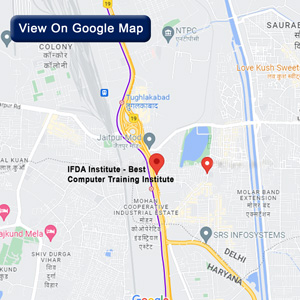computer science course

More than ever, computer science is well-positioned as one of the core subject disciplines in today’s fast-changing technological world. From society’s most basic mobile applications to sophisticated artificial intelligence, underwriting many advances in technology is computer science. Although this is a rather thriving field, anyone who is passionate about a career or academic program in this area should gain insight into what the computer science course involves.
What is Computer Science?
Computer science is a field that deals with algorithms and data structures, as well as the methodology of operating existing and creating new computers. It is rather extensive in terms of the topics it covers and includes such subjects as programming, systems analysis, artificial intelligence, and many others. However, the essence of computer science can be referred to as a science that deals with problem-solving and developing software using logic and mathematics.
Basic facets of a Computer Science Course
1. Programming Fundamentals:
Writing programs is the core of computer science. In a given course, one would initially be introduced to basic languages, for example, Python, Java, or C++. These are the languages used in writing instructions that the computers perform in different operations. The things that will be discussed include variables, control structures, data types, and algorithms.
2. Data Structures and Algorithms:
It is important to know how data is stored, managed, or processed in the machine. This segment of the course looks at arrays, linked lists, stacks, and queues; sorting and searching algorithms. Savvy application and utilization of these structures and algorithms can translate into a great effect on the software programs.
3. Computer Architecture:
This area deals with the operations that take place in computers. Such areas cover organization, function, and implementation of hardware elements, including CPUs, memory, and storage systems. It means that the notions concerning computer architecture should be known to achieve higher software performance and solve the problems with computer hardware.
4. Operating Systems:
Filesystems and computing are managed by the operating systems of the computer. In this section, we will focus on such topics as process management, memory management, file systems, and system calls. It is important knowledge when creating applications that will work coherently with the hardware.
5. Databases:
Functions as a data processing structure, databases have effective ways of storing and handling data. Typically offered courses include relational database management systems (RDBMS) and structured query language (SQL), as well as concepts regarding the design of the databases. You will find out how to design, manage, and query database systems for data-oriented applications.
6. Software Engineering:
In this segment, the emphasis is made on the ways and approaches for building software applications. Those range from the software development life cycle, how projects are managed, versioning, and testing. This knowledge assists in making certain that software is dependable and feasible to keep and grow.
7. Web Development:
It therefore entails the design and construction of applications that operate over the internet. You will discover front-end tools (HTML, CSS, JavaScript, and others) and back-end tools (server side, database, and others). This understanding is essential in order to develop user interfaces or other forms of websites that can be activated or are active.
8. Artificial Intelligence and Machine Learning:
Artificial intelligence is one of the most growing and popular subfields in computer science today. Classes in this area discuss topics and methods that allow computers to learn from data and make some sort of prediction. Areas could be neural networks, natural language processing, and computer-wise recognition, among others.
9. Ethics and Security:
Read also about data privacy, security issues, and ethical considerations that might be relevant in the context of the increasing focus on the protection of personal information. Typically, they teach subjects that include data security, penetration testing, and adherence to laws.
Advantages of studying a Computer Science Course
1. Versatile Skill Set:
Computer science covers all professions that have to do with the use of computers and shocks and vice versa in any given field. Mathematics and computer science knowledge, especially problem-solving abilities, analytical thinking, and programming, are widely needed in such spheres as the financial industry and healthcare, for instance.
2. High Earning Potential:
Computer science employment may entail a good number of salary benefits for those interested in the field. Software developers, data scientists, and IT managers are some of the well-remunerated professions in this field.
3. Innovation and Creativity
Computer science encourages the spirit of ingenuity and innovative concepts. It’s an excellent field if you like creating something yourself; there are countless opportunities for making tangible improvements, whether it is creating new software applications, designing websites, or exploring innovative concepts such as artificial intelligence.
4. Career Opportunities:
Technology is rapidly growing, and the market is in desperate need of talent, especially those who graduated in computer sciences. Whether one is interested in software engineering, cybersecurity, information technology, and so on, opportunities abound.
Potential Career Paths
1. Software Developer:
Programmers are responsible for developing software applications as well as systems. They are active in different areas such as mobile application development, video game development, and business application development.
2. Data Scientist:
It involves the use of statistical tools to make inferences on large data sets in order to solve a given problem. Also, they employ statistical-mathematical tools and machine learning procedures for analyzing data.
3. Cybersecurity Analyst:
Computer security specialists are responsible for ensuring that particular systems and networks are not violated. They create means of protection of the information and measures in case of threats emergence.
4. Web Developer:
Web developers are persons who are responsible for designing and managing web sites. These are usually situated at the two ends, the user interface and the server side, to facilitate smooth functioning.
5. Systems Analyst:
Technologists usually analyze and identify changes that need to be made in computer systems and procedures. They assist organizations in the first step of identifying their needs so that they can carry out changes, which will enable the organizations to gain efficiency in their operation.
Conclusion
In a computer science course, one gets to learn more that guides technological advances in the current world. The courses offered include programming languages, data structures, artificial intelligence, and cybersecurity, among others; this prepares the students for the modern world that belongs to technology. Whether one wants to be a software developer, data scientist, or cybersecurity analyst, information obtained from a computer science course provides a gateway to a number of satisfying careers.
Since the field is dynamic, we end up having to learn more and more as new technologies are developed; thus, receiving a computer science degree equips you with a powerful tool for learning. When you begin this process, you are accepting a challenge that will enable you to be part of a community that uses innovative solutions to address some of the hardest problems in technology.
- Written By - Natasha Singh









